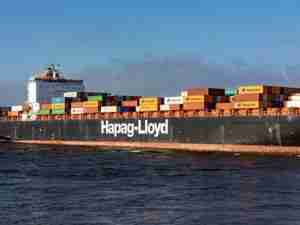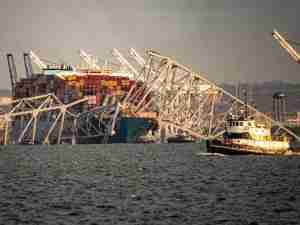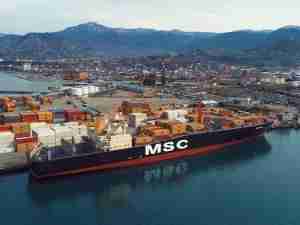Qingdao Port is joining Shanghai International Port (Group) Co (SIPG) and other Chinese peers in an expansion spree to keep up with China's ever growing foreign trade.
It plans to invest 30 billion yuan ($4.6 billion) by 2015, increasing its container volume by two-thirds to 20 million twenty-foot equivalent units (TEU) and nearly doubling its bulk cargo capacity to 600 million tons
"We have several overseas investors in our container terminal already. They will participate in the next phase of the project," Chang Dechuan told Reuters in an interview on the sidelines of China's National People's Congress.
SIPG, however, took a different approach in its multi-billion dollar expansion of the Yangshan deepwater port, which could have as many as 50 container berths eventually, according to local government plans.
Yangshan Port, nearly Shanghai, has several overseas investors in its second phase, including A.P. Moeller-Maersk's APM Terminals and a Hutchison Whampoa subsidiary.
But foreign investors were kept at bay in the following phases as the government, flush with cash, was unwilling to share the ever-growing pie, industry observers say.
Qingdao Port now holds 29 percent of its multiparty container terminal venture, Qingdao Qianwan, Chang said. The rest of the shares are spread "fairly evenly" among Moeller-Maersk, Dubai's DP World , China COSCO among others.
The next phase of the project will be funded by Qingdao Port and its partners initially. But the port operator is also seeking to go public to help bankroll its expansion, Chang said.
IPO
China's IPO market, one of the world's biggest in recent years, is likely to remain active in 2011 if the government speeds up its move to allow foreign companies to sell shares on its stock markets, bankers say.
Dalian Port in the northeast raised $856 million late last year in its share sales in mainland China.
"We had hoped to go public in 2008, but the process takes much longer than expected. We are still working on it," Chang said, but declined to give a new listing target.
On top of the container business, Qingdao, one of the oldest ports in China, also handles varies commodities such as coal, crude oil, iron ore and grain.
Its bulk cargo throughput came to 350 million tons in 2010, up 11 percent from a year earlier, with its container volume up 17 percent at 12 million TEUs, company data showed. (Reuters)









